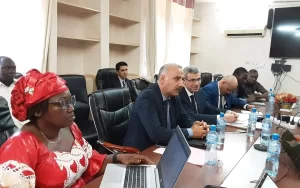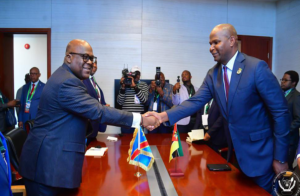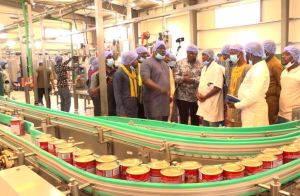Mali / Niger: Towards greater control of Chinese investment in the extractive sectors

Faced with practices deemed non-compliant by certain Chinese companies in the mining and oil industries, Mali and Niger have tightened their policies on foreign investment regulation. The authorities of these two Sahelian countries have decided to take strict measures to protect their natural resources and ensure better compliance with local regulations.
In Mali, the issue of illegal mining involving Chinese operators has sparked a firm response from the government. On March 25, 2025, Prime Minister Abdoulaye Maïga summoned Chinese Ambassador Chen Zhihong for a meeting attended by several government officials. The goal was to review illegal mining activities recorded between 2021 and 2025, along with their environmental and social impacts.
Malian authorities demanded an immediate halt to these practices and strict adherence to national laws regarding the exploitation of natural resources. As part of this, permits for artisanal mining granted to foreigners have been suspended. This decision follows a tragedy that occurred on February 17, 2025, in Bilalikoto, where a mining accident claimed the lives of 48 people, highlighting the dangers of uncontrolled exploitation.
Meanwhile, Niger has taken drastic measures against the China National Petroleum Corporation (CNPC), the main Chinese investor in the oil sector. The Nigerien authorities accuse the company of failing to respect reforms aimed at promoting local employment and prioritizing foreign labor over Nigerien citizens.
To demonstrate its firmness, on March 6, 2025, Niamey revoked the operating license of the Soluxe International Hotel, a property owned by Chinese interests. Furthermore, a series of reforms have been imposed, including the standardization of salary scales, the appointment of Nigerien executives to key positions, and a better distribution of subcontracting contracts in favor of local businesses. These decisions are in line with Ordinance No. 2024-34, which requires foreign companies to promote national talent.
These measures are part of a broader trend of reaffirming the economic sovereignty of the Sahelian states. Since the regime changes in Mali in 2020 and Niger in 2023, the new authorities have sought to rethink their international economic relations to better control the exploitation of natural resources, reduce dependence on foreign partners, and address popular demands in response to observed abuses.
This shift marks a turning point in Sino-Sahelian relations. In light of the new demands from the governments of Mali and Niger, China will likely need to adjust its investment strategy if it wants to maintain its influence in the region. The Chinese Ambassador to Mali has already proposed a coordination mechanism to better regulate investments and avoid conflicts. A similar approach could be considered in Niger, but the discussions are expected to be complex. This reconfiguration of partnerships could thus redefine the terms of cooperation between these African nations and the Chinese economic power.











